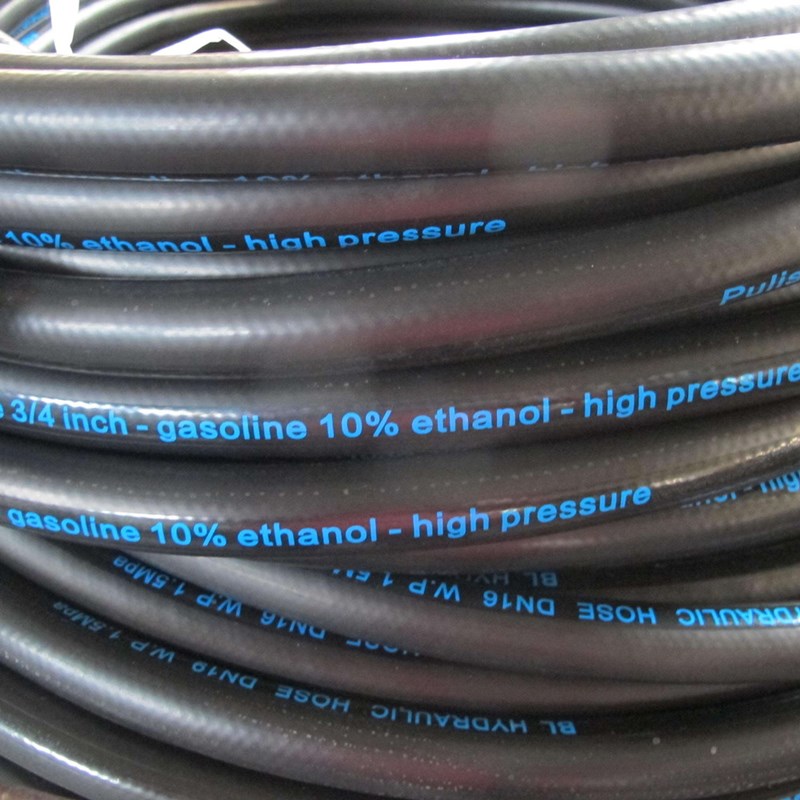335345435
جولای . 27, 2024 19:10 Back to list
Hydraulic Brake Hose Suppliers and Manufacturers for Quality Auto Parts and Accessories
Understanding Hydraulic Brake Hose Manufacturers A Key Component in Automotive Safety
Hydraulic brake hoses play a critical role in the safe and effective operation of braking systems in vehicles. As an integral part of hydraulic brake systems, these hoses transfer brake fluid from the master cylinder to the brake calipers or wheel cylinders, enabling the braking mechanism to function smoothly. As such, the manufacturers of hydraulic brake hoses are paramount in ensuring that vehicles operate safely and reliably.
Importance of Quality in Hydraulic Brake Hoses
The performance and safety of hydraulic braking systems heavily depend on the quality of the brake hoses used. High-quality hydraulic brake hoses are designed to withstand high pressure, resist corrosion, and endure extreme temperatures. Manufacturers invest in advanced materials and technologies to ensure that their products meet stringent safety standards. This leads to a significant reduction in the risk of hose failure, which can result in brake loss and potentially catastrophic accidents.
The materials commonly used in hydraulic brake hoses include rubber and various composites, which provide flexibility and strength. Reinforcement typically involves braided steel or synthetic fibers, enhancing the hose's durability. Leading manufacturers continually innovate to improve the heat and pressure resistance of their hoses, accommodating the demands of modern automotive applications.
Regulatory Standards and Certifications
Due to the critical nature of hydraulic brake hoses, many countries have established rigorous regulatory standards that manufacturers must adhere to. In the United States, for instance, the Society of Automotive Engineers (SAE) sets forth specifications for brake hoses that ensure that they can handle high pressures and maintain structural integrity over time. Similarly, in Europe, compliance with the ECE Regulation 106 is mandatory for brake hoses, ensuring they meet stringent safety and reliability requirements.
To guarantee that their products meet these standards, many manufacturers pursue certifications from recognized bodies. This not only builds credibility but also assures consumers of the safety and quality of their products. Look for products that carry these certifications as they signify adherence to essential safety standards.
hydraulic brake hose manufacturers

The Role of Technology in Manufacturing
Advanced manufacturing technologies are shaping the production processes of hydraulic brake hoses. Automation, precision engineering, and sophisticated testing methods enhance both the efficiency and quality of the manufacturing process. Manufacturers utilize computer-aided design (CAD) software to design hoses that meet specific vehicle requirements while also optimizing for performance.
Moreover, quality control measures, including pressure testing and lifespan analysis, help ensure that each batch of hoses exceeds standard expectations. With advancements in material science, manufacturers are also exploring new polymers and composites that provide better performance and longevity, aiming to minimize wear and tear.
Global Market Dynamics
The market for hydraulic brake hose manufacturers is growing, driven by increasing automotive production and a rising demand for safety features in vehicles. In emerging markets, the growth of the automotive sector is leading to an increased need for reliable braking systems, further boosting the demand for high-quality hydraulic brake hoses.
Moreover, with the rise of electric vehicles (EVs), manufacturers are adapting to new requirements in brake systems, as these vehicles often employ different technologies. This adaptation may lead to innovations in hydraulic hose design and materials, opening new opportunities within the industry.
Conclusion
As a vehicle owner or an industry professional, understanding the importance of hydraulic brake hose manufacturers can aid in making informed decisions regarding vehicle safety and maintenance. The demand for high-quality, reliable hydraulic brake hoses underscores the critical role that manufacturers play in the automotive industry. By adhering to strict safety standards, utilizing advanced manufacturing technologies, and innovating to meet the evolving needs of the market, these manufacturers contribute significantly to ensuring the safety of drivers and passengers alike.
-
SAE 100 R17 Black Smooth Cover Hydraulic Hose
NewsMar.07,2025
-
SAE 100 R17 Black Smooth Cover Hydraulic Hose
NewsMar.07,2025
-
SAE 100 R17 Black Smooth Cover Hydraulic Hose
NewsMar.07,2025
-
SAE 100 R17 Black Smooth Cover Hydraulic Hose
NewsMar.07,2025
-
SAE 100 R17 Black Smooth Cover Hydraulic Hose
NewsMar.07,2025
-
steel wire braided hydraulic hose
NewsMar.07,2025



